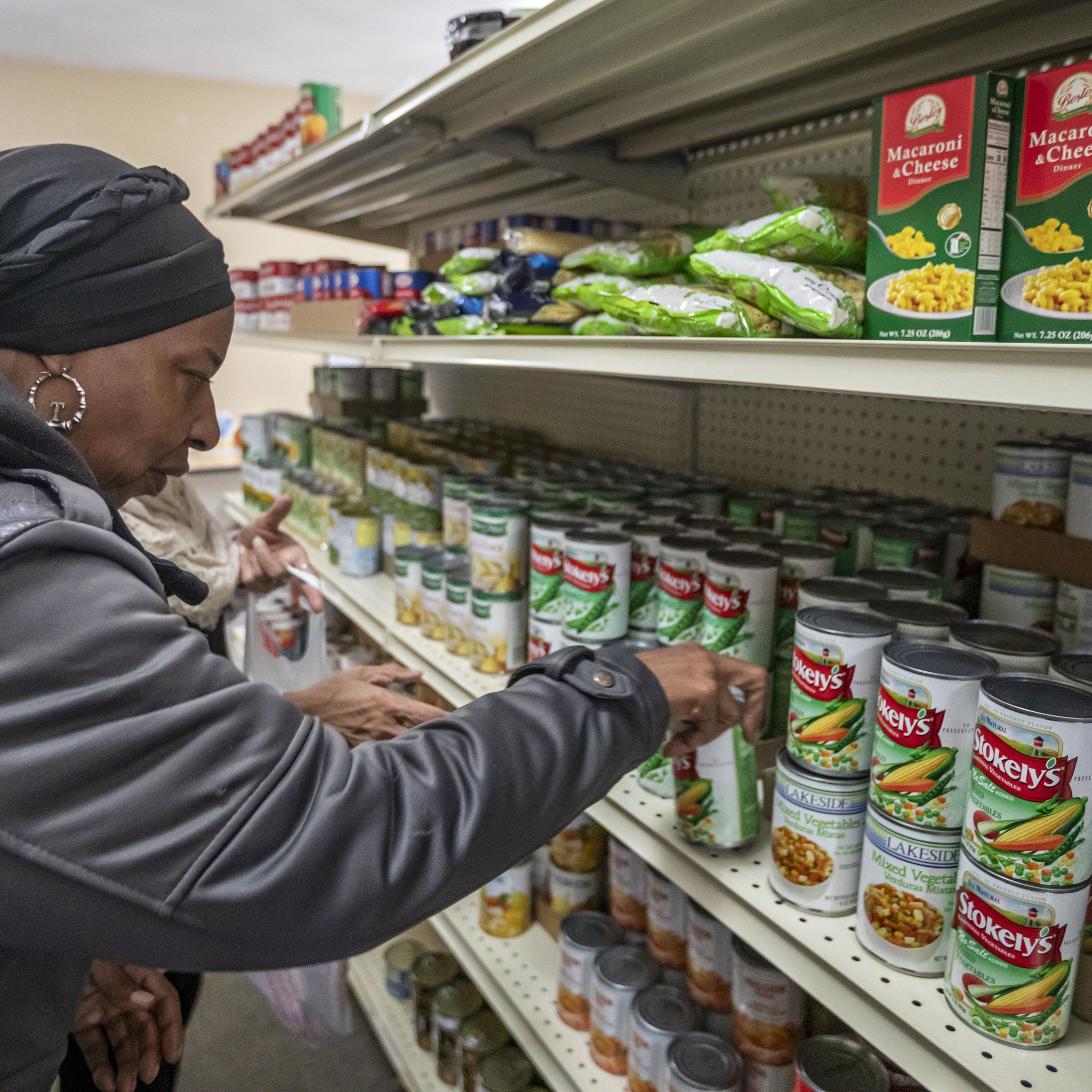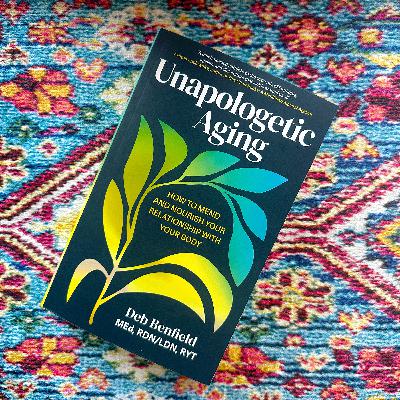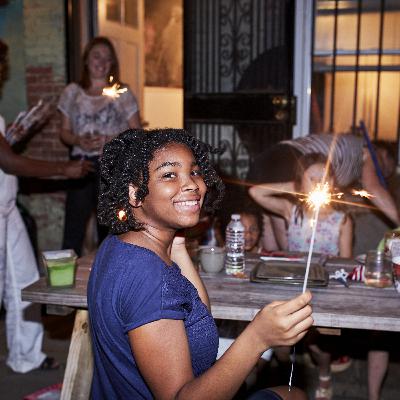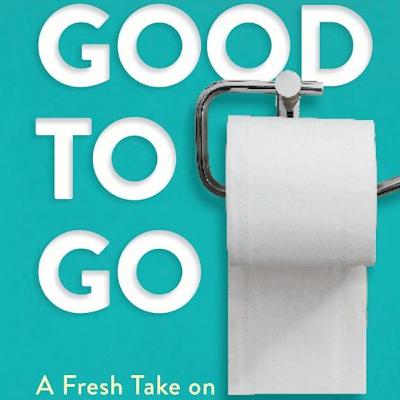"Beauty is a Depreciating Currency."
Description
You’re listening to Burnt Toast! I’m Virginia Sole-Smith. Today, my conversation is with Kaila Yu.
Kaila is an author based in Los Angeles. Her debut memoir, Fetishized: A Reckoning with Yellow Fever, Feminism, and Beauty, came out earlier this fall to a rave review in The New York Times. She's also a luxury travel and culture writer with bylines in The New York Times, Rolling Stone, The LA Times, Condé Nast Traveler and many more.
Kaila's memoir grapples with her experience growing up Asian and female in a world that has so many stereotypes and expectations about both those things. We talk about the pressure to perform so many different kinds of specific beauty labor, the experience of being objectified sexually —and we really get into how we all navigate the dual reality of hating beauty standards and often feeling safer and happier complying with them.
I learned so much from this book, and this conversation with Kaila.
Don't forget that if you've bought Fat Talk from Split Rock Books, you can take 10% off your purchase of Fetishized there too — just use the code FATTALK at checkout.
Join Burnt Toast!
🧈🧈🧈🧈🧈🧈🧈🧈🧈🧈🧈🧈🧈🧈
Episode 218 Transcript
Virginia
Well, I just couldn't put this book down. Your writing is so powerful. The storytelling is incredible. The research is impeccable. It's just a phenomenal book.
You write that from a pretty young age, "I felt the straightest path to empowerment was through courting the white male gaze," which, oof. I felt that. So many women reading can feel that in our bones.
And iIn the great New York Times Book Review of your book, the writer asks, "How much can someone be blamed for their choices when those choices are predetermined by one's culture?"
I feel like this is what we're always reckoning with at Burnt Toast, and this is what runs through the book: So often, beauty work is a logical survival strategy for us.
Kaila
We're taught at such a young age that women are just prized for this thing we have absolutely no control over, really. We can get surgery and makeup but beauty is a currency that's depreciating from the moment you receive it, according to the patriarchy. Like, it shouldn't be considered depreciating, but it is.
And we learn this from like, Disney movies, right? In the book, I bring up my favorite, which is The Little Mermaid, which, because they recently came out with it again, has had a re-examination. And I think they edited it for current audiences. But The Little Mermaid wasn't unique. That was what every fairy tale was like. The beautiful princess wins a prince at the end, and that's the goal.
Virginia
And it doesn't matter that she gave up her family, her home, her culture, her body, everything.
Kaila
Yeah, she fell in love with him after seeing him one time. And him the same with her, without speaking a word to her, because it doesn't matter.
Virginia
It's purely aesthetic, what we're falling in love with.
Kaila
When I was growing up—and it's changed so much since then, luckily—there was just such scarce representations of Asian women. Mostly they were just prostitutes and massage parlor girls on the side, you know? Not even speaking in movies. It wasn't really until Lucy Liu that we got a well-known named actress—and that was way after college for me. So growing up there really just wasn't anyone.
Virginia
You do a great deep dive into Memoirs of a Geisha, which, I'm embarrassed to say--I was a kid when that book came out, and I didn't realize it was written by a white man! I was like, I'm sorry, what?
Kaila
Nobody knows this! I've been talking about it, and still to this day, many people are surprised.
Virginia
I had no idea. Why did anyone give that book the credence it was given? I mean, it's mind blowing. And you're right. It's a story of child prostitution and exploitation.
Kaila
That is glamorized. And sadly, it was beautifully written. Like, I loved the book when I was I think in high school, when I first read it. It is just so well done that you kind of just skate over the many, many red flags.
Virginia
So as an Asian teenage girl reading the book, you're thinking, "Oh, I'm seeing myself. This is Asian stories being told. This is powerful." And then, wait, who's telling the story?
Kaila
Yeah, we didn't really think about that. I think I knew it was a white guy author, but I was like, "That's okay." Like, at that age, I wasn't really thinking about it. I was like, "Thank you for sharing our story," because I didn't really know any history of geisha either. I thought this was what it was, right?
And I was very invisible in high school. So to see these glamorous, beautiful geisha, dressing up in finery and fighting for attention in this seemingly glamorous world was very enticing to me. Because there really were no other examples.
Virginia
it speaks to the dearth of representation that you were like, "Pkay, finally, they're showing us" and it's this terrible story of a child prostitute.
Kaila
Margaret Cho really said this amazing quote, which I'm going to butcher, and I'm paraphrasing. But she said something like, "Asian actresses are like, 'Hopefully one day I can be the prostitute in a war movie, or hopefully one day I could be the woman that the husband cheats on." And she's like, there's so little representation that we would be glad to hold an umbrella behind a main celebrity, just to be in the picture.
Virginia
It's enraging. Since you mention war movies: I was fascinated by the history you include in the book, tracing the development of Asiaphile culture. And we should probably define that term for listeners, who don't know exactly what an Asiaphile is.
Subscribe to never miss an episode!Kaila
Yeah, it's a pretty obscure term that's not used that often. But I use it just because it's an easy, succinct way to say man with an Asian fetish. But I want to specify that I don't think most men who are dating Asian women have an Asian fetish. I do think it's a small vocal minority, but they are very vocal and very online. And they are people who treat Asian women as disposable, replaceable sex objects.
Virginia
And this is really rooted in colonialism and in US military occupations.
Kaila
I don't think people realize the deep history of that. The origins are probably because when Western men first encountered Asian women, it was in colonialist situations. Whether they were going there to spread Christianity or during American occupations in multiple Asian countries.
What's disturbing is that after these young, impressionable soldiers who are like probably barely out of high school, have finished fighting a very traumatic war, they're rewarded by being sent to rest and recreation centers in Thailand or somewhere beachy and nice. Where they found these stations, or clubs, of prostitutes set up specifically for them as a reward.
Virginia
It's skin crawling. That is just a part of our history. That is a thing we did. And I don't think it's well understood, and it completely makes sense then okay, this is how white men first began relating to Asian women. And it has just become more and more entrenched.
Kaila
And Thailand is still a hub of sex tourism today. I don't think there's any military occupation there now, but that industry is all from that time period.
Virginia
It's so dark.
Okay, so you have the Asiaphile issue. You have this geisha representation of Asian women as sexual objects, disposable. And then on the flip side, there is the stereotype of the Asian woman who's an A student, very cold, the Tiger Mom, the Lucy Liu sort of characters. Which is also really problematic and narrow. And those are your options.
Kaila
Yes, yes. I fell into that model minority stereotype, which is exists because I think Asian parents immigrate here to give their children a better life, so they're very strict. My parents, at least, were very strict and expected excellence in school and obedience to parents. And so I was very shy and very studious and all of those things. And I found my social life very lacking in that way.
And I did not like being a model minority student. Becaus



![[PREVIEW] Hot People Problems [PREVIEW] Hot People Problems](https://s3.castbox.fm/be/58/d7/afefd29f8a3939fef5429ea7fd9a7cbe6a_scaled_v1_400.jpg)
![[PREVIEW] Are Standing Pants Different from Sitting Pants? [PREVIEW] Are Standing Pants Different from Sitting Pants?](https://s3.castbox.fm/be/2c/0c/f737b964d5f27610acbbd373a16c29a78e_scaled_v1_400.jpg)

![[PREVIEW] How Much Did You Pay Your Pumpkin Stylist? [PREVIEW] How Much Did You Pay Your Pumpkin Stylist?](https://s3.castbox.fm/fe/3d/c0/dd8784a5450c5e085b6336501f2ac0f261_scaled_v1_400.jpg)
![[PREVIEW] Can A Body Acceptance Advocate Work for Weight Watchers? [PREVIEW] Can A Body Acceptance Advocate Work for Weight Watchers?](https://s3.castbox.fm/ce/6e/f2/62fdccc162b0b6bc777b5875f2c6d64cfa_scaled_v1_400.jpg)


![[PREVIEW] Not Trying to Be Hot 25-Year-Olds [PREVIEW] Not Trying to Be Hot 25-Year-Olds](https://s3.castbox.fm/1c/8e/70/adb41c046a3fe07dc045af139e24fdcf89_scaled_v1_400.jpg)



![[PREVIEW] Is Back To School A Diet? [PREVIEW] Is Back To School A Diet?](https://c10.patreonusercontent.com/4/patreon-media/p/post/140044897/96658452d0a94d9d9f68587dd8f080e2/eyJkIjo3MiwiaCI6MzAwMCwic3RyaXBfYWxwaGEiOjEsInciOjMwMDAsIndlYnAiOjB9/1.jpg?token-hash=4NQew1ZGkoFCcE9HIPmX96uzAsDTOLrC-hMcXzDZbeQ%3D)


![[PREVIEW] The Mel Robbins Cult of High Fives [PREVIEW] The Mel Robbins Cult of High Fives](https://c10.patreonusercontent.com/4/patreon-media/p/post/140044903/63d8db77f7bf4ae6adc056b196ba3c37/eyJkIjo3MiwiaCI6MzAwMCwic3RyaXBfYWxwaGEiOjEsInciOjMwMDAsIndlYnAiOjB9/1.jpg?token-hash=_lgawLhrnuO4p0kAmMk8Wmg8kk1uHDzmHglZCAmOM1I%3D)
![[PREVIEW] When Parenting Influencers Slide to the Right [PREVIEW] When Parenting Influencers Slide to the Right](https://s3.castbox.fm/1a/37/0c/e4a5f3b307c64e00ce970d9cb6eb9d171d_scaled_v1_400.jpg)

![[PREVIEW] Those Pants Don't Deserve You [PREVIEW] Those Pants Don't Deserve You](https://s3.castbox.fm/e8/55/73/160aa97d85aa018717bd9a8867a20a8572_scaled_v1_400.jpg)



